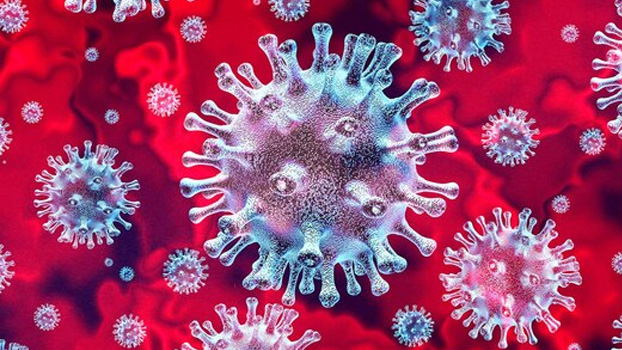Moms with corona can continue breastfeeding
Says World Health Organization

The World Health Organisation (WHO) has recommended mothers with suspected or confirmed Covid-19 to initiate and continue breastfeeding.
The UN health agency also said that mother and infant should be enabled to remain together while rooming-in throughout the day and night and practise skin-to-skin contact, including kangaroo mother care, especially immediately after birth and during establishment of breastfeeding, whether they or their infants have suspected or confirmed COVID-19 virus infection.
“From the available evidence, mothers should be counselled that the benefits of breastfeeding substantially outweigh the
potential risks of transmission,” the WHO said in its latest clinical updates of Covid-19 management.
WHO recognizes that the recommendation for an infected mother to be in close contact with her baby may appear to contradict other infection prevention and control measures that include isolation of persons infected with COVID-19 virus.
“However, the balance of risks is significantly different for infants than for adults. In infants, the risk of COVID-19 infection is low, the infection is typically mild or asymptomatic, and the consequences of not breastfeeding or separation of mother and child can be significant,” it said.
The new clinical guideline for doctors was developed by a multidisciplinary panel of health care providers with experience in the clinical management of patients with COVID-19 and other viral infections, including severe acute respiratory virus (SARS) and Middle East respiratory virus (MERS), as well as sepsis and acute respiratory distress syndrome (ARDS).
The WHO said this guidance should serve as a foundation for optimised clinical care to ensure the best possible chance for survival.
Mothers have been recommended to perform frequent hand hygiene with soap and water or alcohol-based hand rub, especially before contact with her child.
Mothers are also encouraged to perform respiratory hygiene: sneeze or cough into a tissue and immediately dispose of the tissue. Hands should immediately be washed with soap and water or alcohol-based hand rub.
Clean and disinfect surfaces with which the mother has been in contact.
“Wear a medical mask until symptom resolution and criteria for release from isolation have been met.
“Additionally, breastfeeding mothers should be helped to clean her chest with soap and water if she has been coughing on it before breastfeeding. She does not need to wash her breasts prior to every breastfeed.
“While mothers are recommended to wear medical masks, if the mother does not have a medical mask, she should still be encouraged to continue breastfeeding as the benefits of breastfeeding outweigh the potential risks of transmission of the virus when breastfeeding while applying other infection prevention control measures.
The WHO said “at this point it appears that COVID-19 in infants and children represents a much lower risk to survival and health than the other infections and conditions that breastfeeding is protective against.”
“This protection is especially important when health and other community services are themselves under pressure.
“In contrast, the risks associated with COVID-19 in adults are much higher and more severe. Improved communication is needed to address the uncertainties and confusion among programme managers, health workers and communities on this issue,” it suggested.
The WHO suggested that mothers should not be separated from their infants unless the mother is too sick to care for her baby. If the mother is unable to care for the infant another competent family caregiver should be identified.
“Neonates born to mothers with suspected or confirmed COVID-19 should be breastfed within 1 hour of birth. Mothers should apply appropriate infection prevention and control measures.
“Early and uninterrupted skin-to-skin contact between mothers and infants should be facilitated and encouraged as soon as possible after birth, while applying necessary measures for infection prevention and control. This applies also to infants who are born preterm or low birth weight.
“If the newborn or infant is ill and requires specialist care (such as neonatal unit), arrangements should be made to allow the mother free access to the unit, with appropriate infection prevention and control measures.
Earlier initiation of breastfeeding results in greater benefits. Infants should be breastfed exclusively during the first 6 months after birth, as breastmilk provides all the nutrients and fluids they need.
From 6 months of age, breastmilk should be complemented with a variety of adequate, safe and nutrient-dense foods. Breastfeeding should continue up to 2 years of age or beyond.
Breastfeeding counselling, basic psychosocial support and practical feeding support should be provided to all pregnant women and mothers with infants and young children if they or their infants and young children have suspected or confirmed COVID-19 infection.
In situations when severe illness in a mother prevents her from caring for her infant or prevents her from continuing direct breastfeeding, mothers should be encouraged and supported to express milk, and the breastmilk provided safely to the infant, while applying appropriate IPC measures.
In the event that the mother is too unwell to breastfeed or express breastmilk, explore the viability of feeding with donor human milk.
“If this is not possible, consider wet nursing (defined as another woman breastfeeds the child) or appropriate breastmilk substitutes, informed by feasibility, safety, sustainability, cultural context, acceptability to mother and service availability.
“Mothers who are not able to initiate breastfeeding during the first hour after delivery should still be supported to breastfeed as soon as they are able.
“Assistance should be provided after recovery for relactation to re-establish a milk supply and continue breastfeeding.




